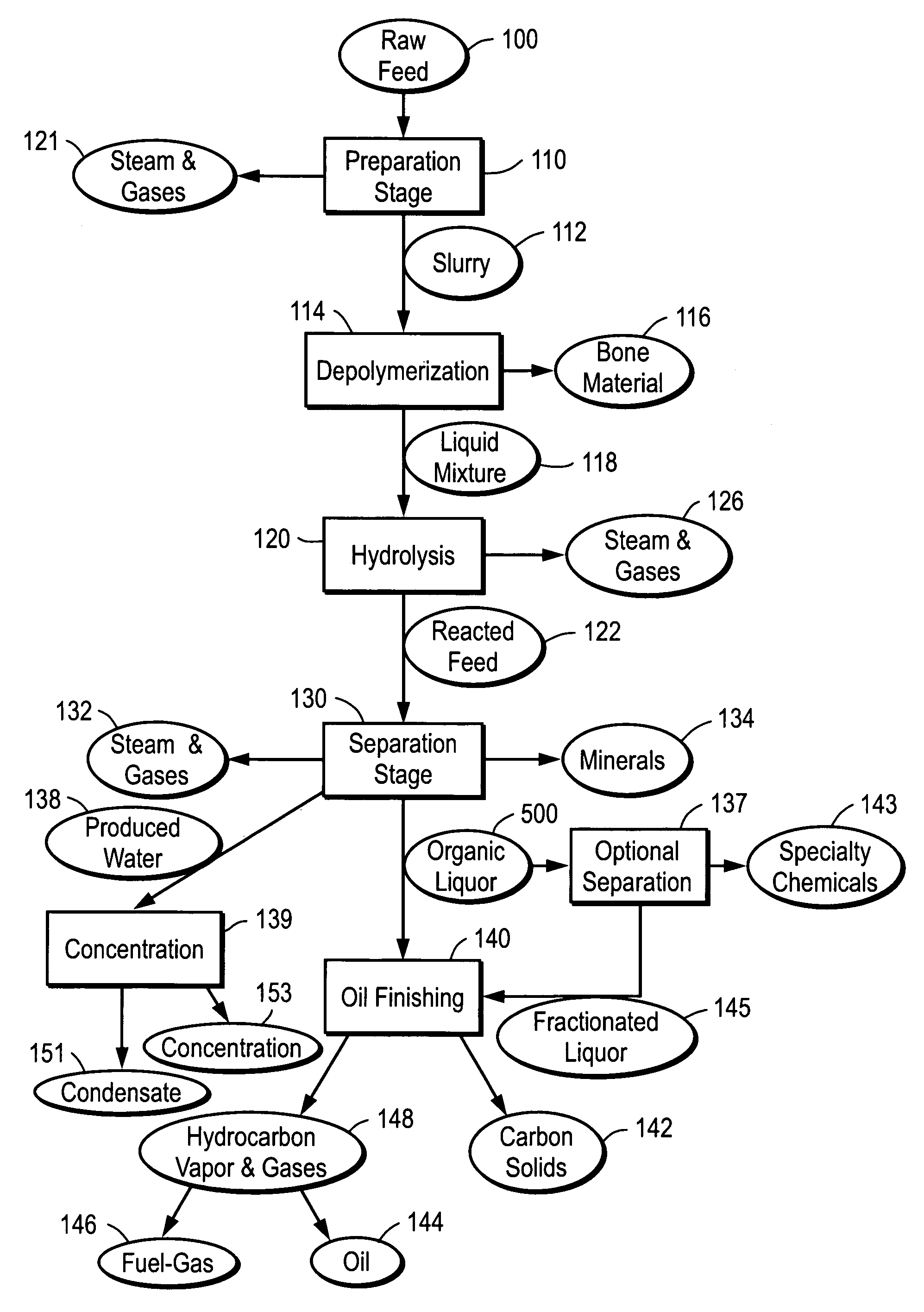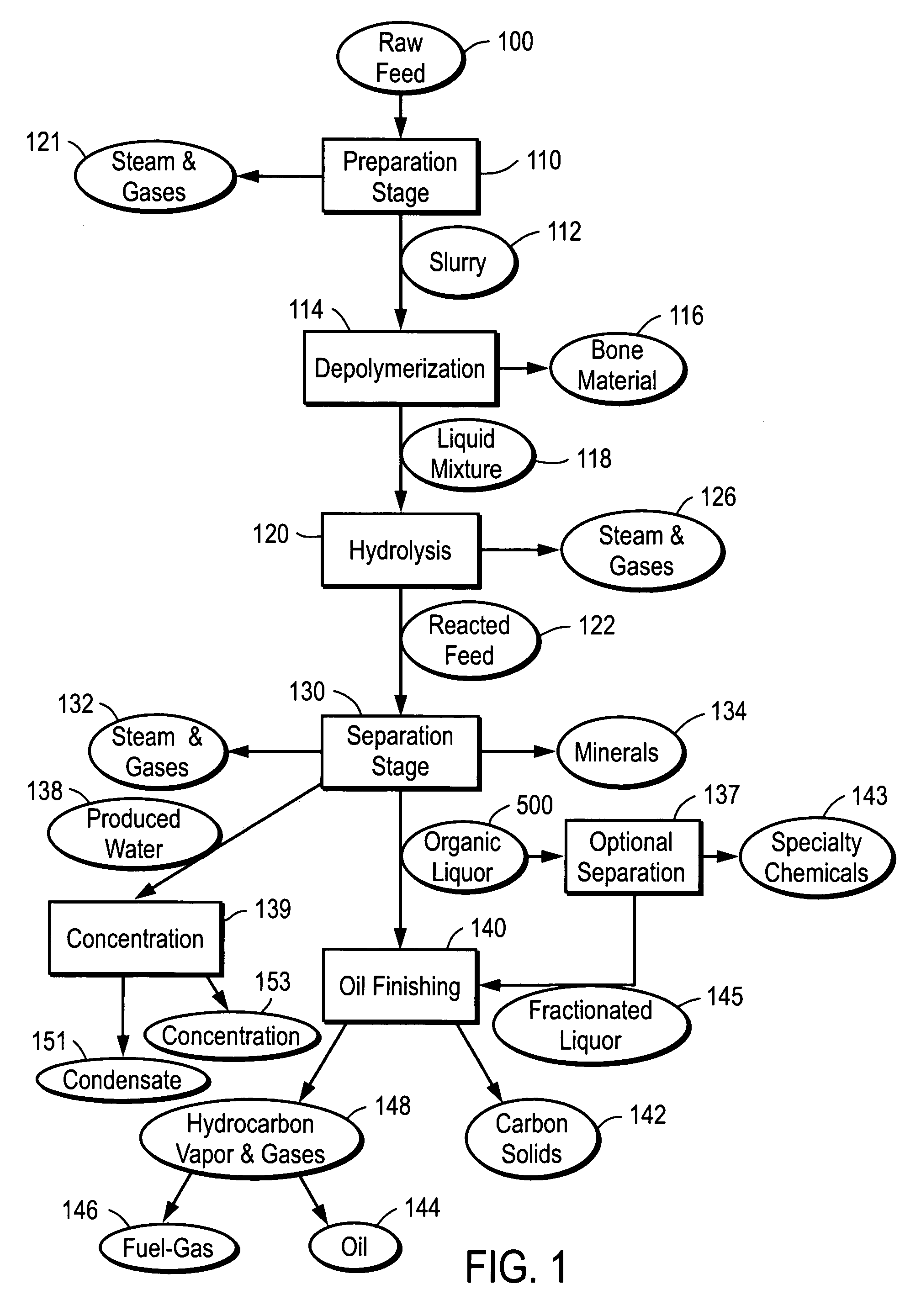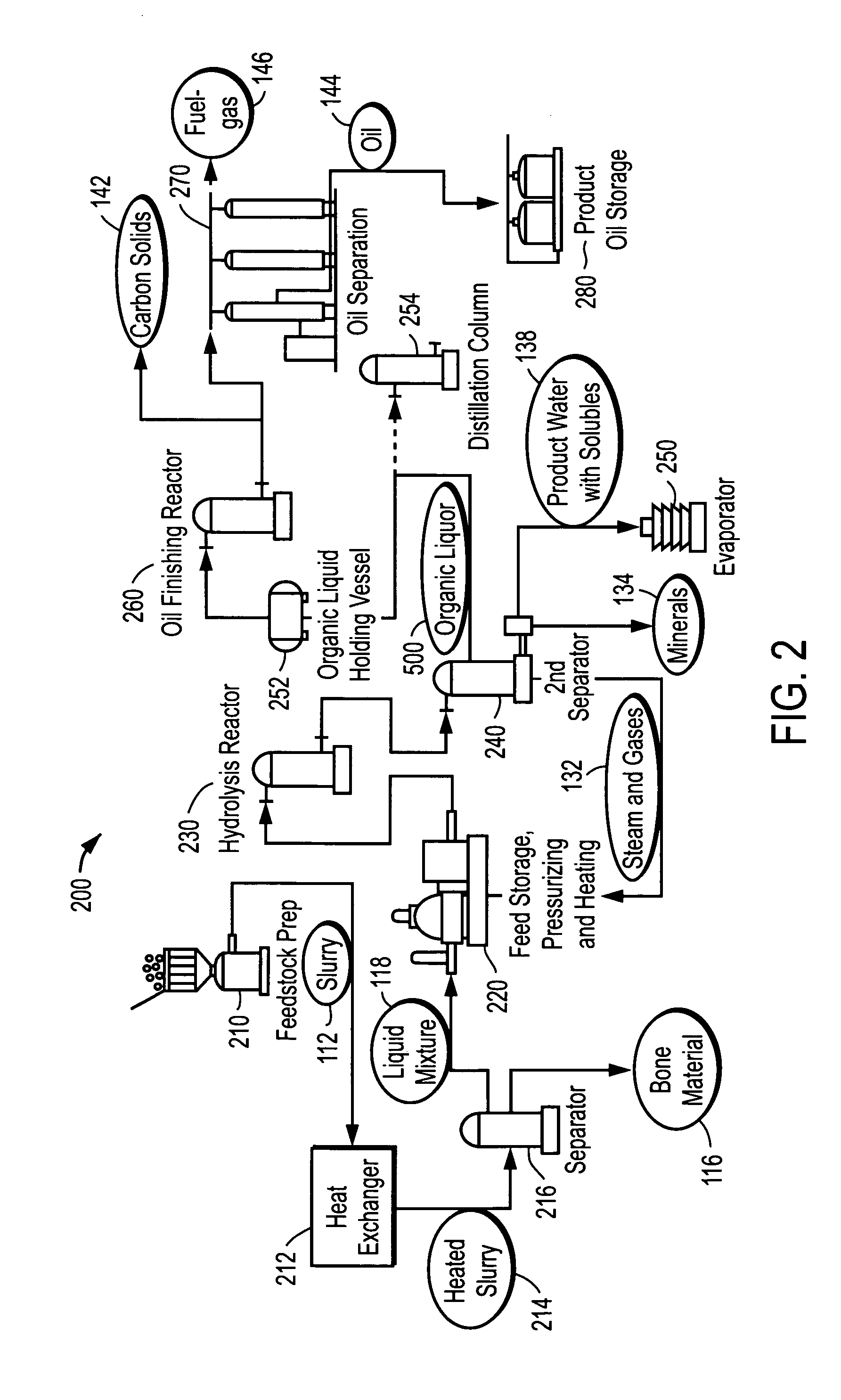Depolymerization process of conversion of organic and non-organic waste materials into useful products
a technology of organic and non-organic waste materials and depolymerization process, which is applied in the direction of chemical/physical/physical-chemical processes, waste based fuels, organic chemistry, etc., can solve the problems of large volumes of waste materials containing largely organic materials produced by the industry, significant economic and environmental pressures for members, and large volume of waste materials produced. , to achieve the effect of high energy efficiency
- Summary
- Abstract
- Description
- Claims
- Application Information
AI Technical Summary
Benefits of technology
Problems solved by technology
Method used
Image
Examples
example 1
Pilot Plant—Shredder Residue Processing
[0197]A pilot plant has been built employing apparatus and processes of the present invention.
[0198]According to one exemplary application of the pilot plant, the experimental feedstock was shredder residue. Of the 3000 lbs. of SR material received for this pilot run, 1072 lbs of dirt / fines was removed and washed with hot water, 715.5 lbs of fines-free SR were processed through the depolymerization unit, and 1212.5 lbs of fines-free SR were held back for future testing. The fines-free SR material was processed through the depolymerization unit along with 79.5 lbs of shredded tires and about 1741 lbs of used motor oil. Samples of the various products were sent out for analysis to determine the fate of heavy metals and of contaminants such as PCBs and chlorine.
[0199]Based on results from comparative sample analyses, PCBs were found to be reduced by an order of magnitude, from 35-65 ppm down to less than 2 ppm.
[0200]Thermal cracking of this hydrol...
example 2
Pilot Plant—Turkey processing
[0217]A pilot plant has been built employing apparatus and processes of the present invention. The pilot plant can handle approximately seven tons of waste per day.
[0218]According to one exemplary application of the pilot plant, the experimental feedstock was turkey processing-plant waste: feathers, bones, skin, blood, fat, viscera. An amount of 10,044 pounds of this material was put into the apparatus's Hydrolysis Stage: a 350-horsepower grinder, which turns the material into gray-brown slurry. From there, the material flowed into a series of tanks and pipes which heated and reformed the mixture.
[0219]Two hours later, a light-brown stream of steaming fine oil was produced. The oil produced by this process is very light. The longest carbon chains are C20. The produced oil is similar to a mix of half fuel oil, half gasoline.
[0220]The process of the present invention has proved to be 85% energy efficient for complex feedstocks such as turkey offal. This me...
example 3
Operating Plant
[0226]A full-sized commercial-scale installation has been constructed with additional facilities in development. At peak capacity, the plant is designed to yield over 500 barrels of oil per day, some of which can be returned to the system to generate heat for powering the system. The oil produced is a high-quality oil of the same grade as a #2 heating oil. The plant produces about 21,000 gallons of water, which is clean enough to discharge into a municipal sewage system, and is also free of pathological vectors. The plant also will make about 25 tons of minerals, concentrate and carbon.
PUM
| Property | Measurement | Unit |
|---|---|---|
| temperature | aaaaa | aaaaa |
| temperature | aaaaa | aaaaa |
| temperature | aaaaa | aaaaa |
Abstract
Description
Claims
Application Information
 Login to View More
Login to View More - R&D
- Intellectual Property
- Life Sciences
- Materials
- Tech Scout
- Unparalleled Data Quality
- Higher Quality Content
- 60% Fewer Hallucinations
Browse by: Latest US Patents, China's latest patents, Technical Efficacy Thesaurus, Application Domain, Technology Topic, Popular Technical Reports.
© 2025 PatSnap. All rights reserved.Legal|Privacy policy|Modern Slavery Act Transparency Statement|Sitemap|About US| Contact US: help@patsnap.com



